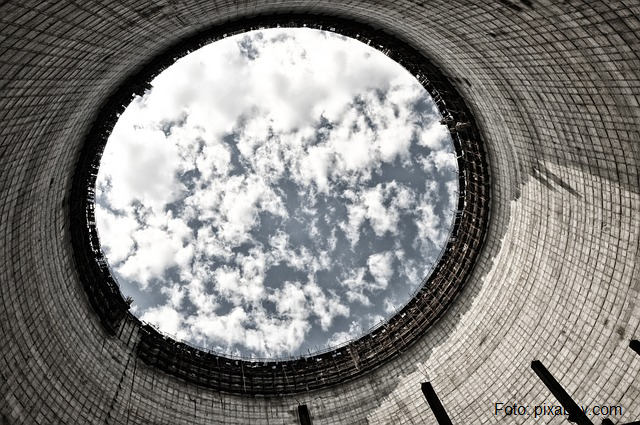35 Years since the Chernobyl Disaster
Chernobyl was the worst civilian nuclear disaster in world history

Steliu Lambru, 10.05.2021, 14:00
With only days before Easter day in 1986, on May 2, Romanians got the
news of a terrible nuclear disaster in the Soviet Union. The accident had
happened a week before, on April 26, 1986, an accident which the USSR cynically
acknowledged on April 28, without offering any additional information. It what
was about to go down in history as the worst civilian nuclear catastrophe on
record: the explosion at Chernobyl disaster.
The impact of the news on Romanian society was toned down by the
authorities’ fixation for secrecy, the poor communication with the population
and the existing confusion over the upcoming holiday. Apart from the Easter
celebrations, May 7 was a very anticipated day, when Romania’s football champions,
Steaua Bucharest, was about to play the Spanish champions FC Barcelona in the
European Champion’s Cup final. Technical details about the accident and its
tragic outcomes are widely known today. Ioan Stanomir, Professor at the Faculty
of Political Sciences at the University of Bucharest, has provided insight into
the communist regime’s secrecy:
This secrecy was less acute than the years preceding Mikhail Gorbachev’s
ascension to power. The Soviet Union at the time was facing a number of difficulties.
As many historians have pointed out, reforming a vulnerable system will only heighten
its vulnerabilities. For the Soviet Union, wrapped in its cloak of
all-conquering science, acknowledging a catastrophe was tantamount to
acknowledging a scientific, economic and political failure.
The inconspicuous actions of the Ceaușescu regime followed in the
footsteps of the USSR, its ideological big brother. The authorities in
Bucharest followed Moscow’s decisions, and made the announcement to the population
later, nearly a week after the Chornobyl incident occurred. We asked Ioan
Stanomir why Ceaușescu, who was known for his anti-Soviet discourse, decided to
make the decision so late:
Let’s assume Ceaușescu was anti-Soviet. Yet he was a Stalinist first and
foremost, and as such he understood that disclosing such information could open
his dictatorship to vulnerabilities. And Nicolae Ceaușescu himself, as the head
of this communist regime, ad a special propensity for secrecy. Therefore, his
distinguished Soviet colleagues could only confirm his suspicions regarding
transparency. Why was transparency needed? The incident had to be kept secret in
order for the Soviets to be able to cover up the catastrophe. Ceaușescu sometimes
got caught in a mythical aura, as if he himself was a Robin Hood of communism.
Yes, he was a Robin Hood, endorsed by the police. And in key moments he kept
quiet and never underlined the boss’s authority.
Romania had its own nuclear program in Cernavodă, started in late 1970,
which provided for the import of French-Canadian technology at high safety
standards. Ioan Stanomir.
Romania’s nuclear program was not conceived with the Soviets, due to Ceaușescu’s
megalomania. There were some suspicions over the reliability of the Soviet
nuclear system. Fortunately for Romania, Nicolae Ceaușescu wanted his voice to
stand out in the Russian gulag, and thus preferred to work with the West. Let’s
not forget that our neighbors in Bulgaria had a piece of Soviet nuclear
technology at the plant in Kozloduy.
Chernobyl also brought about political changes. Ioan Stanomir.
As regards Romanians’ perception, there was hardly anything that could deepen
the state of collective depression in Socialist Romania in the 1980s. The
communist state took minimal measures. Beyond that, the people, famished and
impoverished, was trying to put up some resistance. At the level of Central and
Eastern Europe, it is clear the Chernobyl catastrophe only heightened the
impression that the Soviet Empire was built on economic backwardness and brute
force, none of which would recommend it as a power to be reckoned with in the absence
of coercion.
Any historical event also comes with lessons to be learned. Ioan Stanomir.
It’s clear that the Chernobyl disaster also marked a test of courage for
the people involved. The people who fought to contain the terrible fire ended
up sacrificing their lives. It is to them, not Soviet authorities, that we owe whatever
lives have been saved. At the same time, today we can see astounding images of
what the Chernobyl reserve looks like. After the explosion, the site became an
exclusion zone. Still, animals have started reinhabiting the area. It resembles
Tarkovsky’s films, and I particularly refer to ‘Stalker’. The area is now populated
by wolves, foxes and wild horses, and is untouched by man. It’s basically a utopic
end of the road. Man disappears from the image, leaving behind a nature that
has forgotten about its existence.
The Chernobyl disaster 35 years ago is an example of man’s recklessness
and nature’s regenerative power. (V.P.)





























